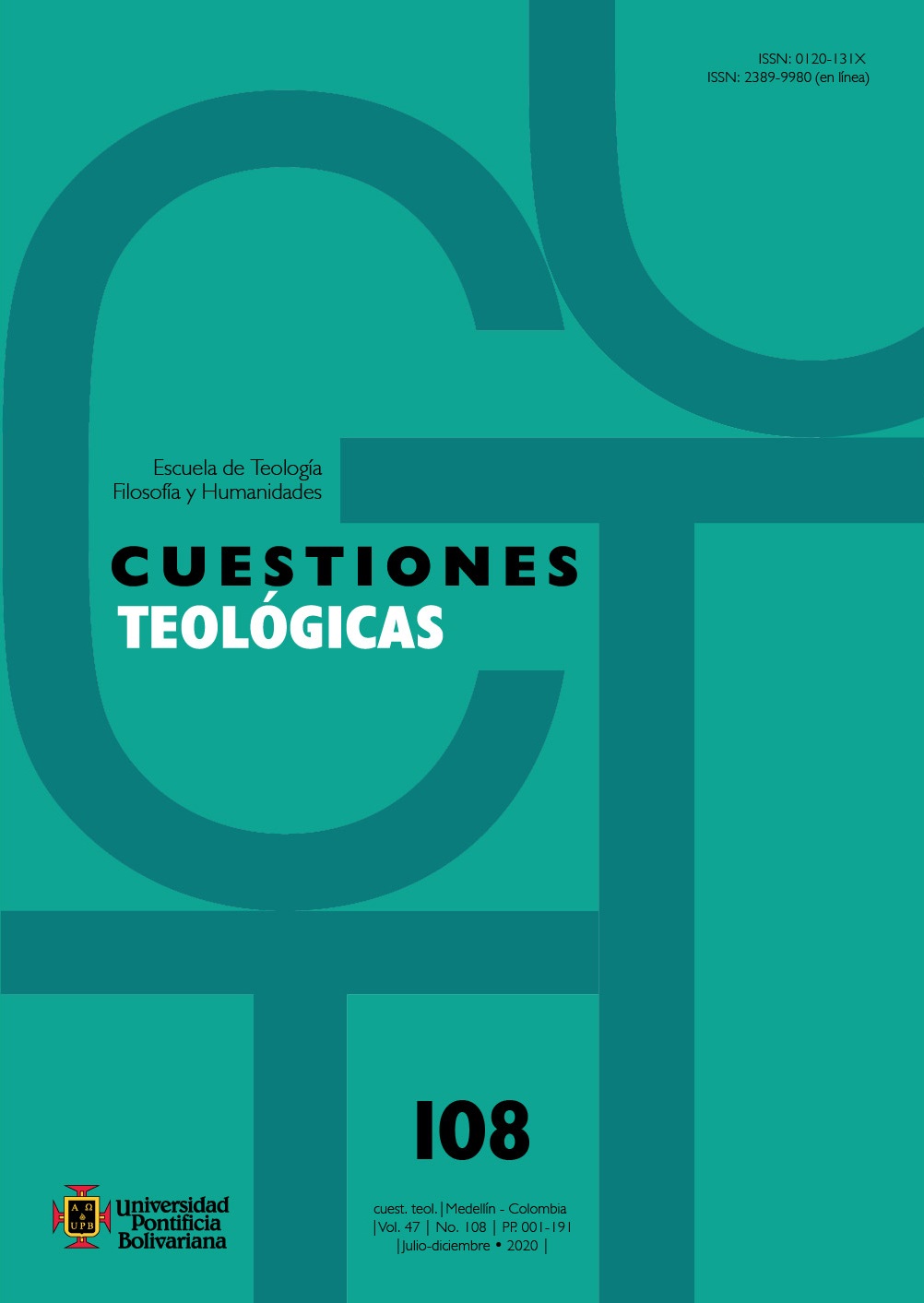Use of the Old Testament in Paul’s Epistle to the Philippians
Main Article Content
Abstract
This article considers Paul’s Epistle to the Philippians as an opportunity for teaching, incentive and motivation, distinctive contributions of the Apostle to the Gentiles (Rom. 11: 13). Thus, the research highlights these features based on the use of the texts of the Old Testament according to the method developed in G. K. Beale’s Manual do uso do Antigo Testamento no Novo Testamento and R. B. Hays’ Echoes of Scripture in the Letters of Paul. Following the method used to identify the use of the Old Testament in the New Testament, the article aims at understanding how Paul appropriated and interpreted the allusions and echoes of the ancient texts that left a mark on him and influenced his writing. It also aims at understanding how Paul grasped these passages and how they contributed to and influenced the apostle in the moments when the letter was written. He always re-interpreted those texts, in the everyday life of his community, according to the concrete experience of the life of the Church in Philippi. Finally, it also carefully considers two further things: the analysis of the Christological Hymn (Phil. 2: 10-11) and the issue concerning the unity of the epistle, which is regarded as authentically Pauline. Therefore, the article helps to understand how the New Testament appropriates the Old Testament, basing itself on the LXX and not the Hebrew Bible, which occurs not only in the Pauline epistles, but in the whole New Testament.
References
Aletti, J. N. (2011). Uma retórica paulina: construção e comunicação de um pensamento. Em A. Dettwiler, J-D. Kaestli, & D. Margerat (Orgs.). Paulo, uma Teologia em construção (pp. 51-71). São Paulo: Loyola.
Barbaglio, G. (1991). As cartas de Paulo (II). São Paulo: Loyola.
Beale, G. K. (2013). Manual do uso do Antigo Testamento no Novo Testamento. São Paulo: Vida Nova.
Belli, F., Carbajosa, I., Estrella, C. J., Navarro, L. S., (2006). Vetus in Novo: El recurso a la Escritura en el Nuevo Testamento. Madrid: Encuentro.
Buscemi, A. M. (2000). Gli inni di Paolo: una sinfonia a Cristo Signore. Jerusalém: Franciscan Printing Press.
Craddock, F. B. (1985). Filippesi. Torino: Claudiana.
Elliger, K. e Rudolph, W. Bíblia Hebraica Stuttgartensia. Stuttgart: Deutsche Bibelgesellschaft, 1994.
Etcheverría, R. T. (2002). Estudios Paulinos. Salamanca: Publicaciones Universidad Pontificia Salamanca.
Fee, G. D. (2004). Comentario de la Epístola a los Filipenses. Barcelona: Clie.
Fitzmyer, J. A. (1988). The Aramaic Background of Philippians 2:6-11. Em CBQ (50), 470-483.
Focant, C. (2016). La Carta a los Filipenses. Salamanca: Sigueme.
García Martínez, F. (1995). Textos de Qumran. Edição fiel e completa dos Documentos do Mar Morto. Petrópolis: Vozes.
Gonzaga, W. (2017), O Corpus Paulinum no Cânon do Novo Testamento. Em Atualidade Teológica (v. 21, n. 55), 19-41. https://doi.org/10.17771/PUCRio.ATeo.29100
Gonzaga, W. (2019). Compêndio do Cânon Bíblico: Listas bilíngues dos Catálogos Bíblicos Antigo Testamento, Novo Testamento e Apócrifos. Petrópolis: Vozes.
Gonzaga. W. (2019a), “Nascido de Mulher” (Gl 4,4). Em Horizonte, Belo Horizonte, (v. 17 n. 53), 1194-1216.
Grappe, C. (2013). Aux sources de la christologie. Quelques remarques sur la structure les representations et l’originalité de ‘lhymne de Philippiens 2,5-11 à la lumiére notamment de traditions vétérotestamentaires et juives. Em Arnold, M.; Dahan, G., & Noblesse-Rocher, A., (Orgs). et al., Philippiens 2,5-11: La kénose du Christ. Paris: Cerf.
Haag, H. (1971). A formação da Sagrada Escritura. Em J. Feiner, & M. Loehrer, Mysterium Salutis (vol. 1/2), 119-156. Petrópolis: Vozes.
Hahn, E., & De Boor, W. (2006). Cartas aos Efésios, Filipenses e Colossenses: Comentário Esperança. Curitiba: Esperança.
Hawthorne, G. F. (2008). Carta aos Filipenses. Em G. F. Hawthorne, R. P. Martin, & D. G. Reid (Orgs.). et al., Dicionário de Paulo e suas Cartas (pp. 556-564). São Paulo: Paulus/Vida Nova/Loyola.
Hawthorne, G. F., & Martin, R. P. (2004). Philippians: Revised Edition. Michigan: Zondervan.
Hays, R. B. (1989). Echoes of Scripture in the Letters of Paul. Michigan: Yale University press.
Hendriksen, W. (2005). Efésios e Filipenses. São Paulo: Cultura Cristã.
Holloway, P. A. (2017). Philippians. Minneapolis: Fortress Press. https://doi.org/10.2307/j.ctt1tm7hgf
Kittel, R. (ed.). (1997). Biblia Hebraica Stuttgartensia. Editio quarta emendata opera H.P. Rüger. Stuttgart: Deutsche Bibelgesellschaft.
Martin, R. (2011). Filipenses: Introdução e comentário. São Paulo: Vida Nova.
Mazzarolo, I. (2011). Carta de Paulo aos Filipenses. Rio de Janeiro: Mazzarolo editor.
Meynet, R. (1993). A Análise Retórica. Um novo método para compreender a Bíblia. Em Brotéria (137), 391-408.
Meynet, R. (1996). I frutti dell’analisi retorica per l’esegesi biblica. En Gregorianum (77/3) 403-436.
Millos, S. P. (2016). Filipenses: Comentario exegético al texto griego del Nuevo Testamento. Barcelona: Clie.
Nestle-Aland. (2012). Novum Testamentum Graece. Ed. XXVIII. Stuttgart: Deutsche Bibelgesellschaft.
Murphy-O’Connor, J. (2006). Christological Anthropology in Phil II,6-11. Em RB (83), 25-50.
Pastor, F. (2009). Corpus Paulino II. Henao: Desclée De Brouwer.
Pitta, A. (2010). Lettera ai Filippesi: nuova versione, introduzione e commento. Milano: Paoline.
Rahlfs, A., & Hanhart, R. (eds.). (2006). Septuaginta. Editio Altera. Stuttgart: Deutsche Bibelgesellschaft.
Reumann, J. (2008). Philippians: a new translation with introduction and commentary. London: Yale University.
Reumann, J. (2006). The (Greek) Old Testament in Philippians: 1:19 as Parade. Exemple – Allusion, Echo, Proverb. Em S. Son, History and Exegesis (pp. 189-200). New York: T&TClark.
Robertson, A. W. (1996). El Antiguo Testamento en el Nuevo. Buenos Aires: Nueva creación.
Rodriguez, M. (2001). La Biblia Comentada por los Padres de la Iglesia y otros autores de la época patrística. Gálatas, Efesios, Filipenses. Nuevo Testamento, 8. Madrid: Ciudad Nueva.
Schnelle, U. (2014). Paulo, vida e pensamento. Santo André: Academia Cristã; São Paulo: Paulus.
Silva, M. (2008). Antigo Testamento em Paulo. Em G. F. Hawthorne, R. P. Martin, & D. G. Reid (Orgs.). Dicionário de Paulo e suas Cartas. (2ª ed.). (pp. 76-92). São Paulo: Vida Nova/Paulus/Edições Loyola.
Ueti, P. (2010). No esvaziamento de Deus, a glória da vida. Uma leitura de Fl 2,5-11. Em Estudos Bíblicos (105), 57-75.






